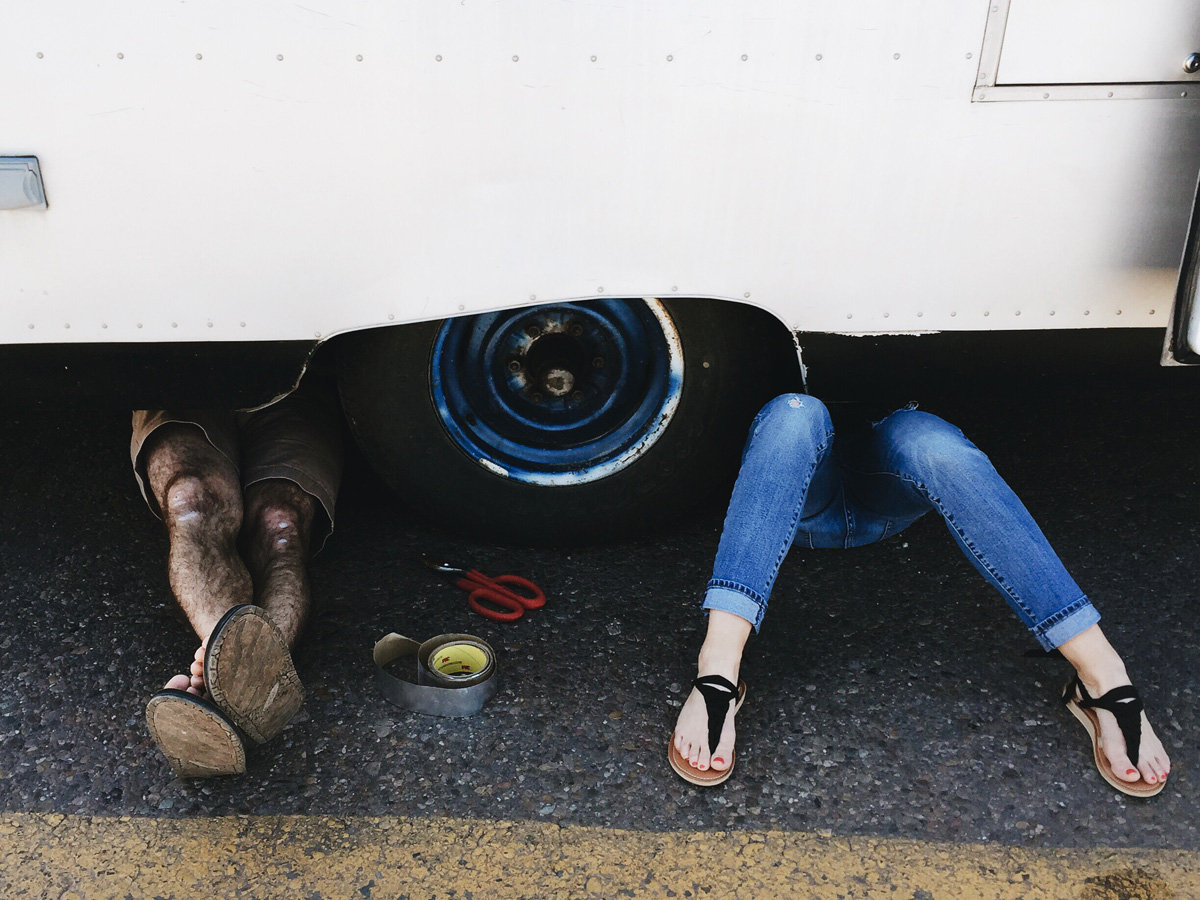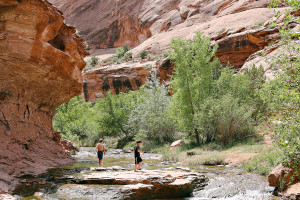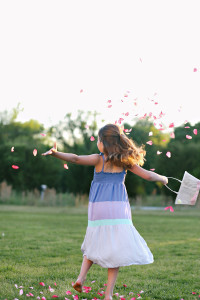travel FAQ
This is going to be a long post! While on our recent trip to Utah and Arizona, I was asked a lot of questions related to the trip. I have compiled most of those questions here and tried to combine ones that were similar. Hopefully, this will help some of you as you plan trips!
How do you manage to go on long trips (with work and expenses)? Chris and I both work from home and my business is entirely online. I can work anywhere that I have wifi access, so we pick campsites that allow me to work when needed. Chris is self-employed, but he has commitments to clients and events that require him to be home. However, he is able to continue to work with phone and wifi access while we travel. That being said, we have a significant amount of flexibility with our schedules.
As far as the expenses go, we travel very inexpensively. In the two weeks we were gone on the last trip, I think we ate out about 4 times. All other meals (breakfast, lunch and dinner) were in our trailer, so our food expenses are basically the same as at home. We stay in our trailer at campsites that are $25-50 a night, usually on the lower end. Most of the things we do on trips are free (hiking, exploring). The national parks offer a park pass to 4th graders. It gets the entire family into the parks for free, so we didn’t have that expense. Our biggest expenses is gas. In general, we try to live significantly UNDER our means, so that helps tremendously when we want to spend extra on gas for a trip. All in all, we are primarily paying for gas and the RV campsite, while continuing to work some on the road too. For more information on what life in our trailer looks like, click here for a post I previously wrote.
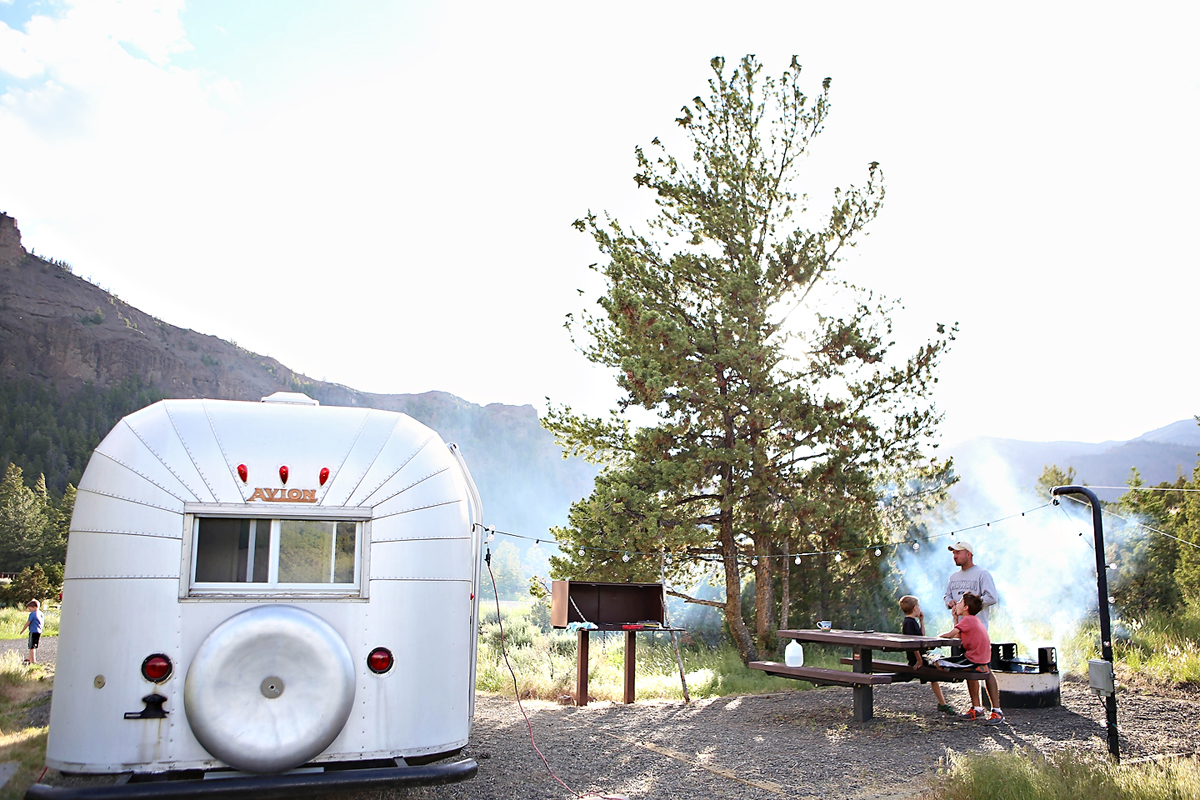 Where do you start? How do you research? We have a LONG list of places all over the globe we want to visit. When we begin planning a trip, we start with considering how much time we have for that trip. Our family does not do well with trips that feel very rushed with lots of driving. We need downtime and the ability to move slow. Road trips allow us to go at a slow pace.
Where do you start? How do you research? We have a LONG list of places all over the globe we want to visit. When we begin planning a trip, we start with considering how much time we have for that trip. Our family does not do well with trips that feel very rushed with lots of driving. We need downtime and the ability to move slow. Road trips allow us to go at a slow pace.
For our recent trip to Arizona and Utah, we knew we had two weeks we could spend away. Once we knew the dates of the trip, we began picking a handful of places we wanted to visit.
When it comes to picking places to visit, we use our National Parks guide, TripAdvisor, Pinterest, and I always ask the advice of those that read this blog and follow my instagram account. For this trip our key spots were: Albuquerque (to see friends), Petrified National Forest, the Grand Canyon, Horseshoe Bend, Antelope Canyon, Zion National Park, Bryce National Park, Escalante, Canyonlands National Park and Arches National Park. Once we have our list of stops, we look at our atlas to figure out the route we want to take. For road trips that include several stops, we try to stay at least two nights in each location. This gives us time to explore without feeling rushed.
Our trailer does not have water hook-ups and we don’t use a generator, so we camp in places with electrical and water available (RV parks and campgrounds). Most national parks book campsites 6 months in advance. If you can plan that far ahead, the national parks usually have great camping options. We don’t plan that far in advance, so Chris does internet research and picks our campsites based on our needs. (nps.gov, Trip Advisor, and Good Sam are big helps). Sometimes we are pleasantly surprised. Other times we are thankful it is only two nights! We also try to find campgrounds that have free wifi, so we can continue to work while on the road (when needed).
In summary, before we leave we know the location where we will spend each night and sometimes a certain place we want to visit. We would be happy not even scheduling campsites, but we’ve learned the hard way that places fill up weeks in advance. Once we get to a location (or as we are driving) we begin thinking about what we want to do. Our daily plans are very fluid and change constantly. We just have to make sure we are at the right campsite each night!
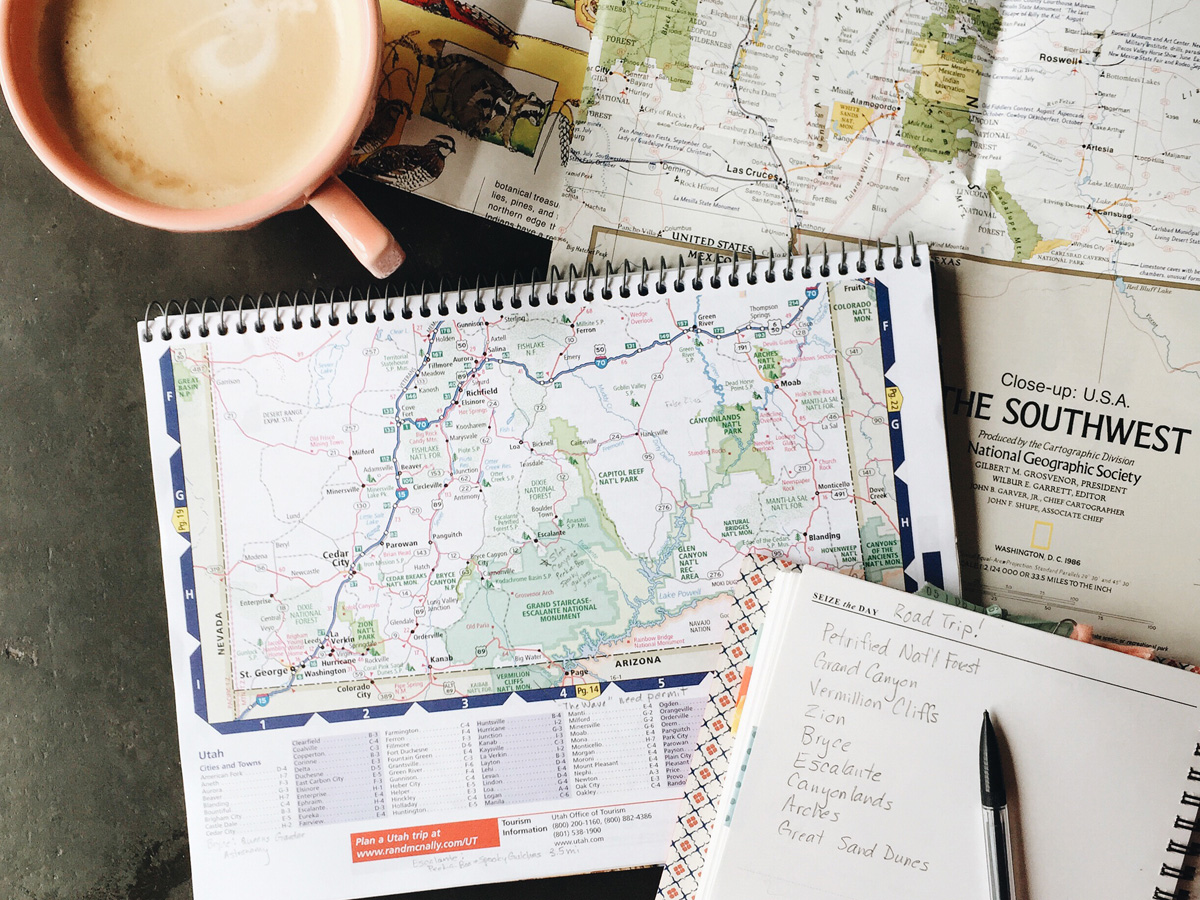 What type of vehicle do you use to pull your camper and fit your entire family for a long trip? We have a Suburban. Keep in mind our trailer is from 1966, which means it had to be pulled behind the size of trucks and cars back then…it is relatively light! On the other hand….it is 50 years old. Repairs happen often!
What type of vehicle do you use to pull your camper and fit your entire family for a long trip? We have a Suburban. Keep in mind our trailer is from 1966, which means it had to be pulled behind the size of trucks and cars back then…it is relatively light! On the other hand….it is 50 years old. Repairs happen often!
How did you keep your kids from killing each other in the car that much? Since our kids typically spend ALL day being very physical when we are camping – climbing, hiking, swimming, running – we let them veg out in the car. When we drive from one location to the next, they often watch movies or play video games. There is the random, “Everyone turn everything off! You need to be daydreaming and gazing out the window” that I call out. It usually doesn’t last long. We also rearrange seating if two siblings are bothering each other too much. And food. Snacks. Drinks. Snacks. Drinks. I keep a cooler with cold things in the back (since we don’t need storage because we have the trailer) and a bag of dry snacks in the main part of the car.
On the 10 hour drive home from our Utah trip, we had one kiddo that was DONE. I mean done done. Parents, you know what I mean. It was Mother’s Day. There were tornado warnings in Oklahoma. About 2 hours from home, I looked at Chris and said, “Just let me out of the car. I will walk home. In the rain. Through a tornado. Just let me out of this car!” – our kids are not always singing travel songs and talking about rainbows on the really long drives, but our trailer sure does look cute going down the road!
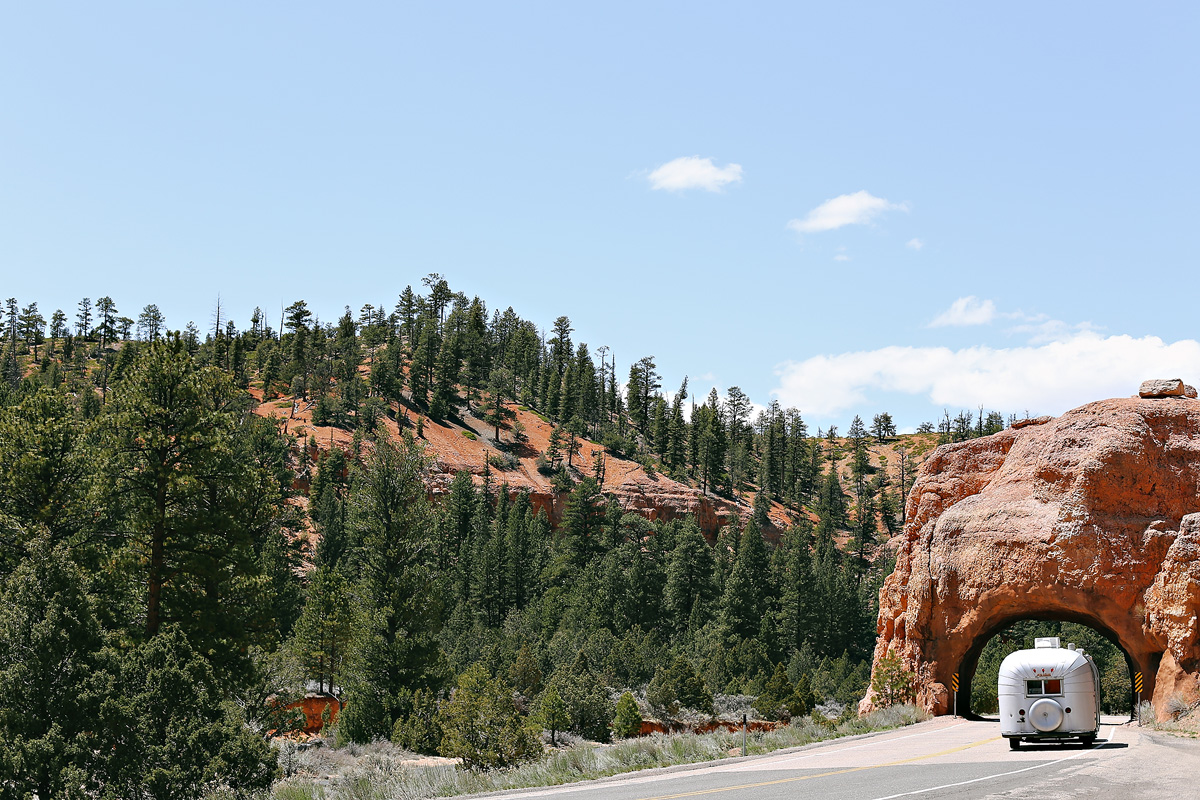 Would you mind sharing camping meal ideas and tips?
Would you mind sharing camping meal ideas and tips?
We have a full size refrigerator in our trailer. We also have an electric skillet, waffle maker and our espresso machine. I can make just about anything with those items. It is not like tent camping. We eat totally differently when camping in our tent. When using our trailer, we eat very similar to what we would at home. There are tons of camping meal ideas on Pinterest.
Any tips/tricks you could offer on efficiently camping with kids, storage and packing?
Keep in mind we are camping in a trailer, not a tent. It is a whole different ball game. We have storage…lots of storage. Every family member has a bin to keep their clothes. If you look at the photo below, I will walk you through how we store things. On the right (behind the curtains, below the bed) we store our clothes. Everyone has a designated spot. On the lower left side (behind the doors) we store a laundry basket for dirty clothes, school books and trailer maintenance stuff. In the top cabinets, we keep sweatshirts, gloves, beanies, towels, and each family member has another little bin that is their own. Keeping things super organized is key for my sanity in the trailer. There is also storage in the other end of the trailer for blankets, sheets, etc.
As far as packing, we have learned to pack for every season! Everyone has t-shirts, shorts, jeans, sweatshirts, swimsuits…a little of everything. We don’t have to pack super light since we are in the trailer.
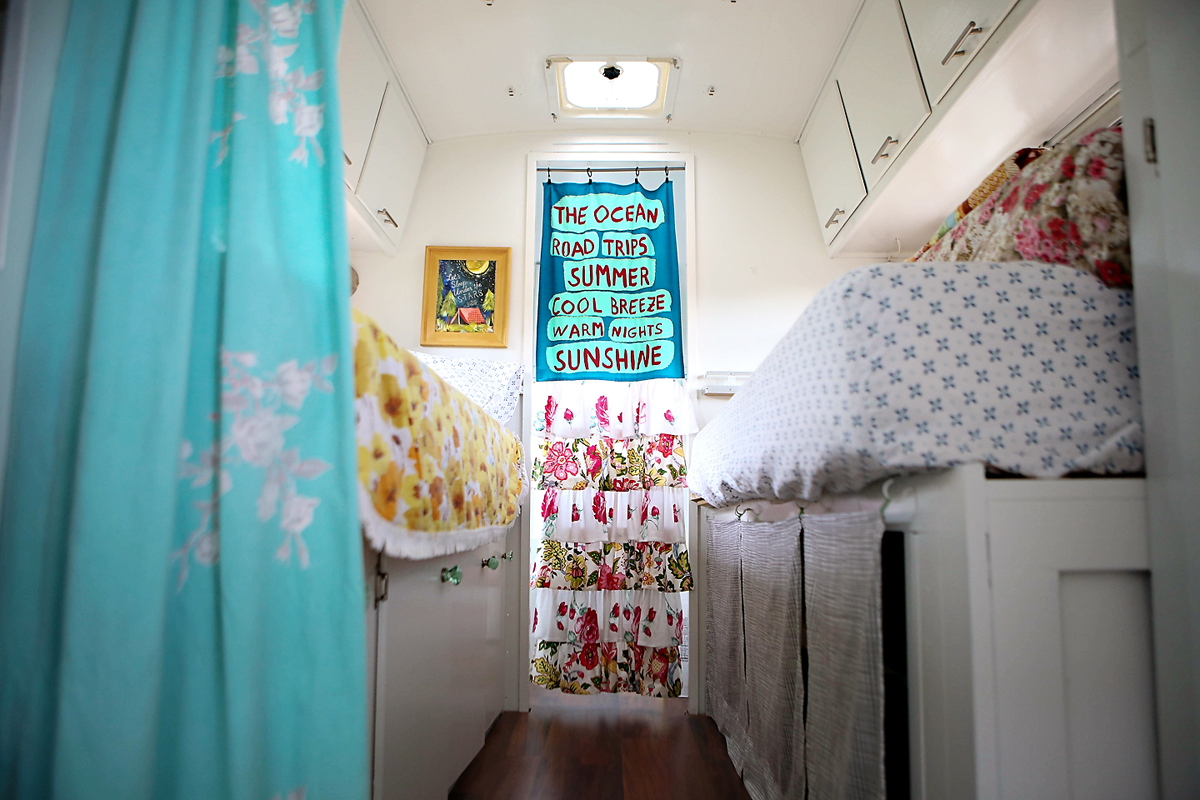 How did you all fit in that tiny camper? First, we aren’t the tallest people in the crowd. Chris is 5’9″ and I am 5’1″…the kids are all shorter. I don’t think we would do a vintage camper if we were tall. It would not be very comfortable. When we are all in the trailer, there is not much extra space. We jockey positions as we move around. It feels a little like Tetris! We actually do not spend a lot of time in the trailer, so we don’t need much room. We are usually out and about all day and return just to eat and sleep. When it is time to sleep, we pull a board between the two twin beds and add a mattress on top of the board and another below it. This gives us sleeping space for 4 people. The other 3 share the front bed. Tetris.
How did you all fit in that tiny camper? First, we aren’t the tallest people in the crowd. Chris is 5’9″ and I am 5’1″…the kids are all shorter. I don’t think we would do a vintage camper if we were tall. It would not be very comfortable. When we are all in the trailer, there is not much extra space. We jockey positions as we move around. It feels a little like Tetris! We actually do not spend a lot of time in the trailer, so we don’t need much room. We are usually out and about all day and return just to eat and sleep. When it is time to sleep, we pull a board between the two twin beds and add a mattress on top of the board and another below it. This gives us sleeping space for 4 people. The other 3 share the front bed. Tetris.
You can see a full tour of our trailer by clicking here.
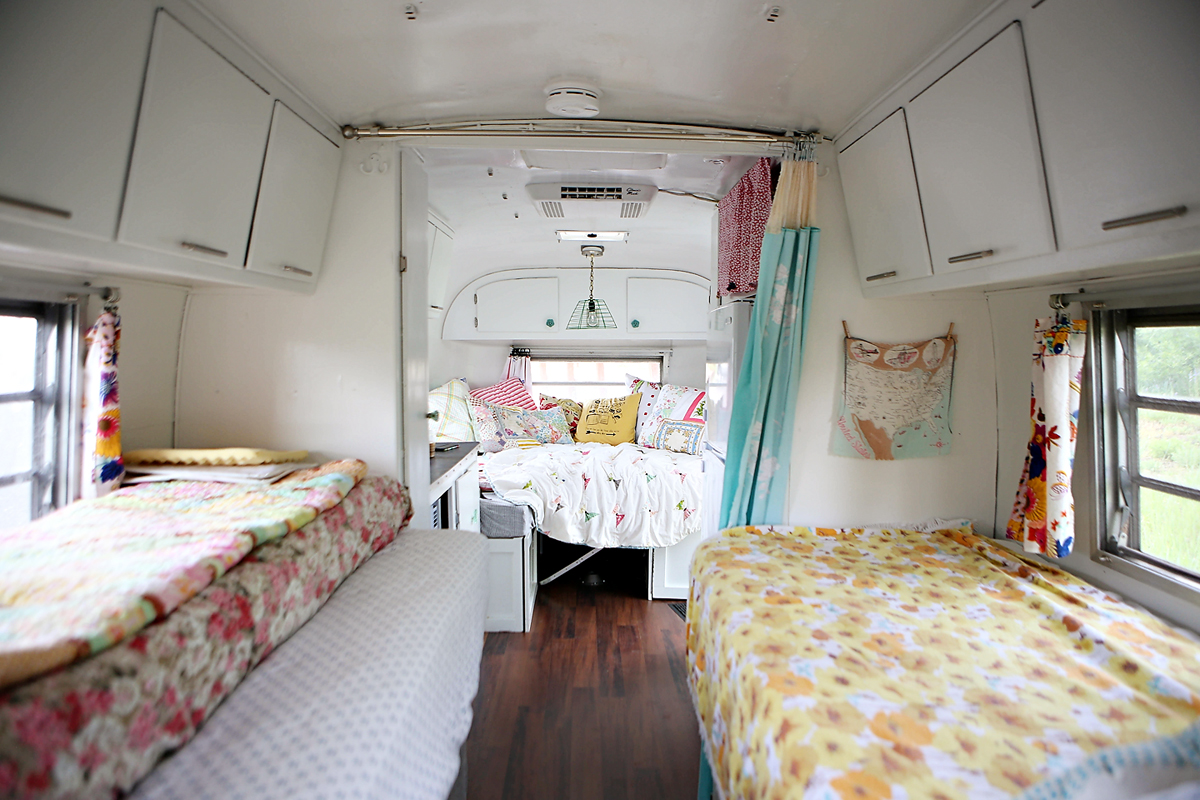 So, how often do you and/or Chris end up carrying the girls? This changes depending on the hike. If it is fairly level, the girls can hike several miles without being carried. If the hike involves a significant amount of climbing, our youngest usually wants to be carried a bit. On this last trip, we hiked between 5-8 miles almost every day for 2 weeks. Our 6 year old was only carried once or twice for about 5 minutes. She can completely hold her own. There were times she wanted breaks and a little extra motivation. If she wanted a rest stop, we always stopped. We also picked hikes based on not just on what we thought they could handle, but what would be fun. If hiking is miserable, they won’t want to go. If hiking is a fun adventure, even with a little physical push, they want to keep going.
So, how often do you and/or Chris end up carrying the girls? This changes depending on the hike. If it is fairly level, the girls can hike several miles without being carried. If the hike involves a significant amount of climbing, our youngest usually wants to be carried a bit. On this last trip, we hiked between 5-8 miles almost every day for 2 weeks. Our 6 year old was only carried once or twice for about 5 minutes. She can completely hold her own. There were times she wanted breaks and a little extra motivation. If she wanted a rest stop, we always stopped. We also picked hikes based on not just on what we thought they could handle, but what would be fun. If hiking is miserable, they won’t want to go. If hiking is a fun adventure, even with a little physical push, they want to keep going.
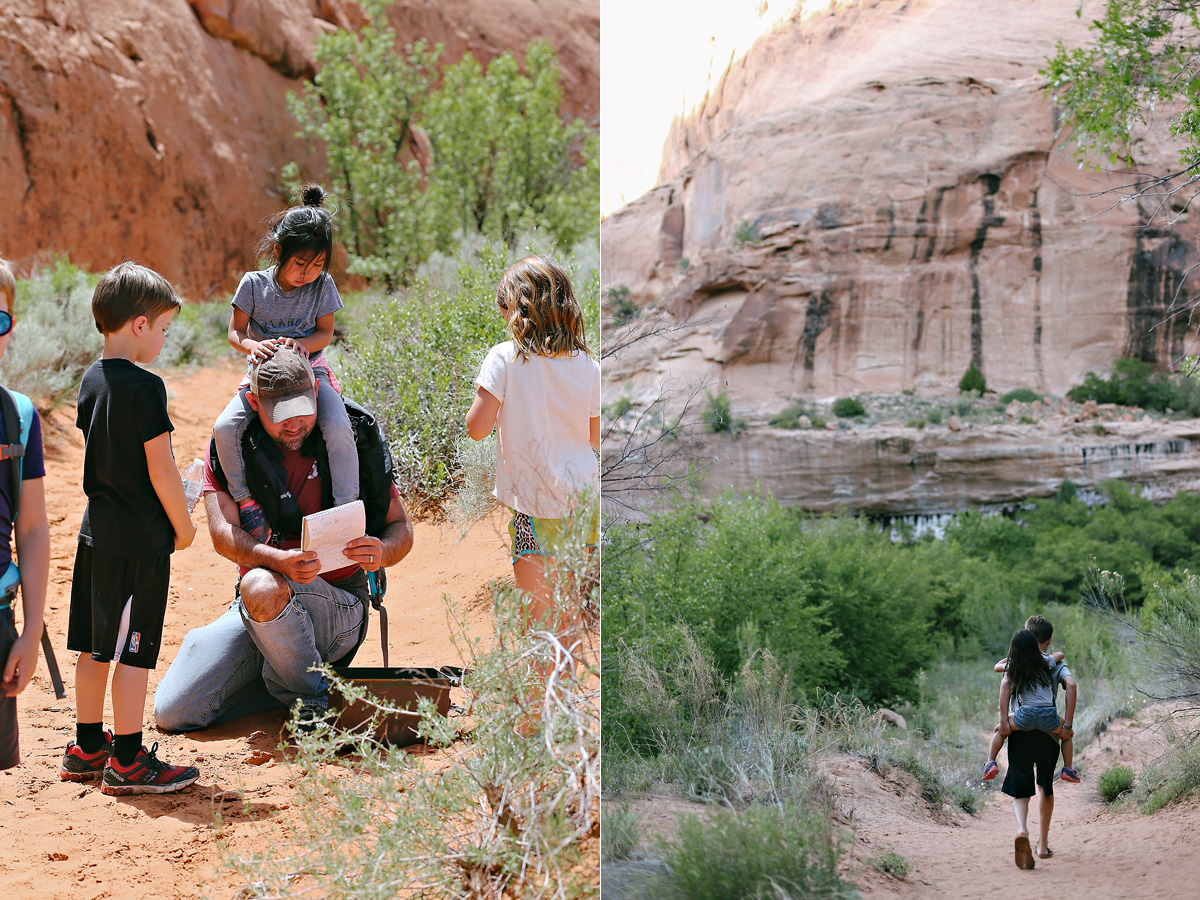 What do you bring with you on your hikes? Backpacks. Sunglasses. Water. Hats. Snacks. First Aid. Camera. Depending on the hike and length, we might bring something extra like more sunscreen or flipflops.
What do you bring with you on your hikes? Backpacks. Sunglasses. Water. Hats. Snacks. First Aid. Camera. Depending on the hike and length, we might bring something extra like more sunscreen or flipflops.
A couple years ago, we picked up three kid-size backpacks from REI. They are the perfect size for the boys (and me) for day hikes. We can pack a lot or just a little in them. They have waist straps, a chest strap, emergency whistle and enough padding to provide some support. I cannot recommend them enough. I connected with the company Babiators prior to our trip. They sent each of my kids a pair and the glasses held up to my rough and tumble kids…they can bend, flex and be dropped off large rocks without breaking. The main point though is they protect my kids’ eyes, which is the most important to me.
For snacks we pack trail mix, granola bars, stuff that can get mashed in a backpack and not melt in the heat. For the first aid kit, I just fill a quart size ziploc bag with a few key things out of our bigger first aid pack that stays in the trailer. It fits in the top little pocket of one of the backpacks. And my camera. I always have my camera!
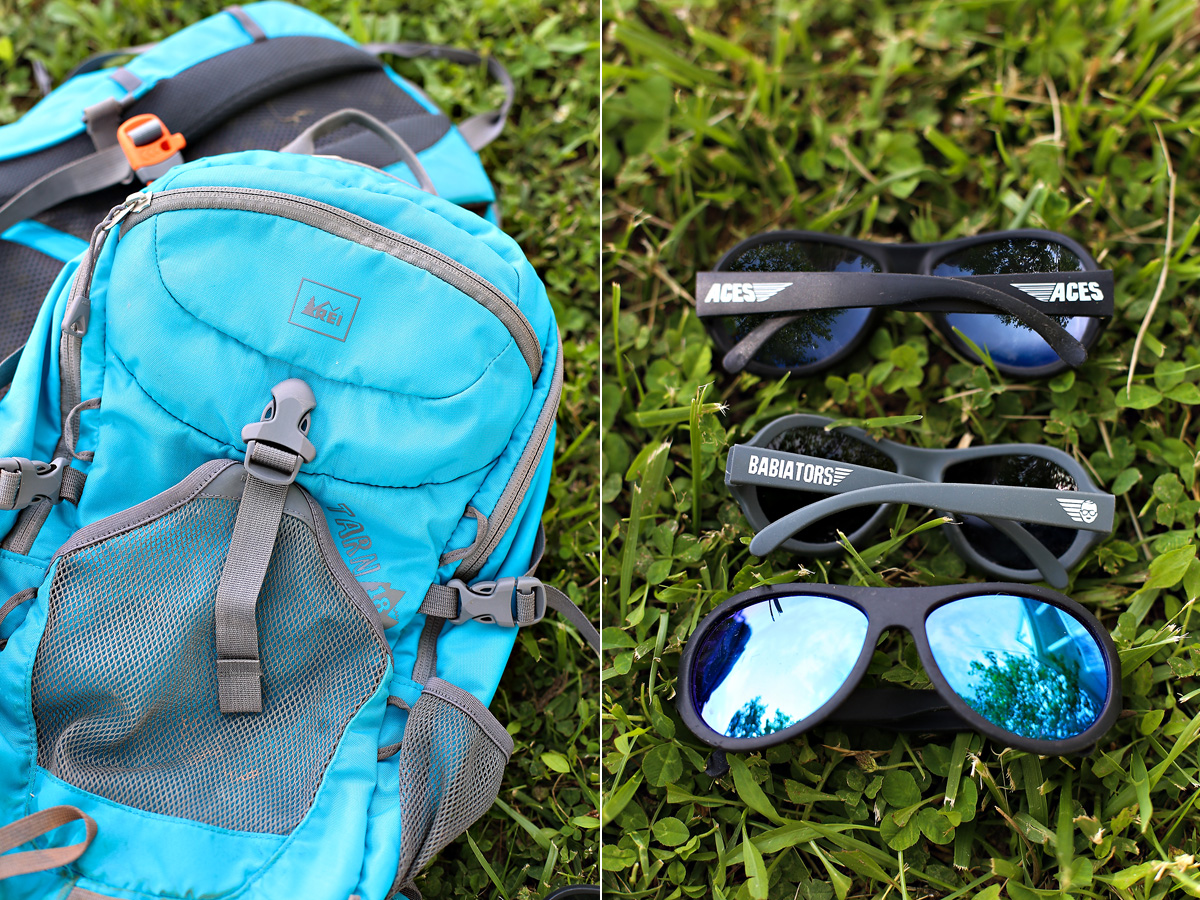
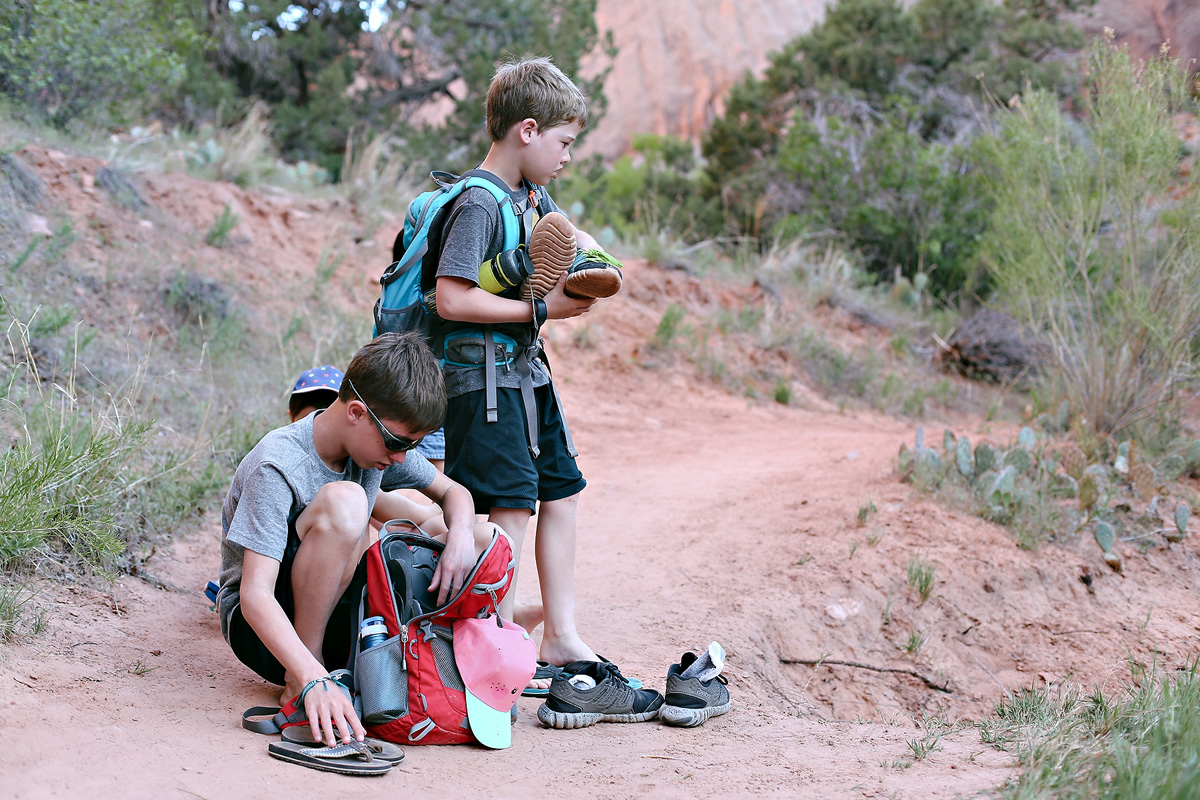 I find myself constantly wondering if you are afraid of wildlife? What do you do to prepare for an encounter, have you ever had one and are your kids worried at all? Honestly, as parents we aren’t worried, so our kids pick up on that and aren’t worried either. We know our surroundings, potential risks and precautions. For instance, in Yellowstone we hiked with bear spray and did not put ourselves in places that bears were known to frequent. In Utah, we knew what snakes to watch for as we hiked. We never saw any. By nature, Chris and I aren’t not very fearful individuals, so that helps. We do educate ourselves on potential risks (always reading trail head signs and so on). We also take the kids to ranger talks where they learn all about wildlife and how to respond if they encounter a dangerous (or not dangerous) animal.
I find myself constantly wondering if you are afraid of wildlife? What do you do to prepare for an encounter, have you ever had one and are your kids worried at all? Honestly, as parents we aren’t worried, so our kids pick up on that and aren’t worried either. We know our surroundings, potential risks and precautions. For instance, in Yellowstone we hiked with bear spray and did not put ourselves in places that bears were known to frequent. In Utah, we knew what snakes to watch for as we hiked. We never saw any. By nature, Chris and I aren’t not very fearful individuals, so that helps. We do educate ourselves on potential risks (always reading trail head signs and so on). We also take the kids to ranger talks where they learn all about wildlife and how to respond if they encounter a dangerous (or not dangerous) animal.
We also teach the kids to respect wildlife by not feeding animals or trying to scare them. In national parks, most animals have lost a bit of their ‘wild’ due to so many interactions with humans. They either coming running towards people hoping for food or try to stay away from people.
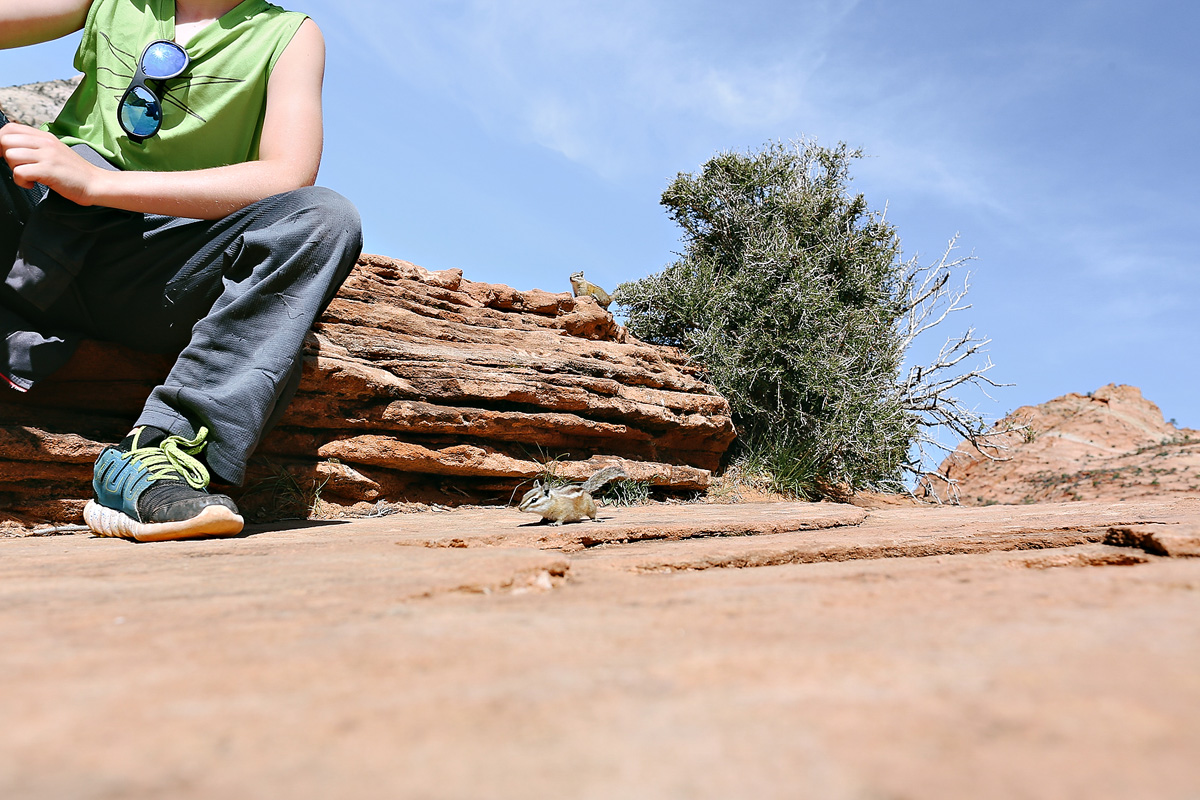 How many times did you tell your kids to stay away from the edge of the canyon? Only a handful. My kids are getting older. A few years ago, I said it several times each hike. These days, they make good decisions regarding safety while hiking. I think with so many difficult and challenging hikes over the years, they’ve learned to know when to lean towards thrill and when to lean harder towards caution. This was not always the case.
How many times did you tell your kids to stay away from the edge of the canyon? Only a handful. My kids are getting older. A few years ago, I said it several times each hike. These days, they make good decisions regarding safety while hiking. I think with so many difficult and challenging hikes over the years, they’ve learned to know when to lean towards thrill and when to lean harder towards caution. This was not always the case.
When hiking around ledges and drop-offs, you have to know your kids. I saw a few teenagers that caused me far more concern my guys. In addition, we take the kids to ranger talks on safety. In fact, one ranger talk in Yellowstone was about death and dying in the park. It sounds gruesome, but the ranger geared it towards kids. My boys have not forgotten that talk and it has caused them to be far safer while hiking.
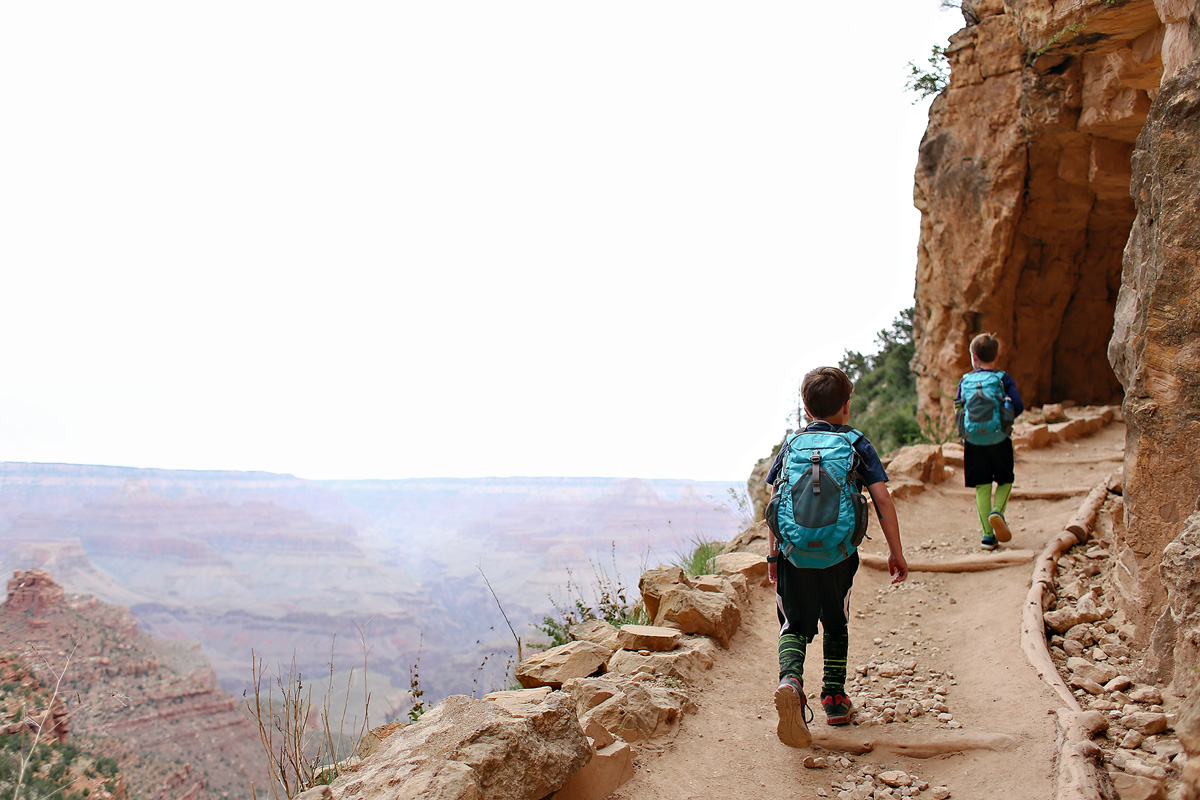 Do you have any tips on safe hiking with your littlest? We all try to show extra grace and patience. Being the youngest, she wants to keep up and do all that her siblings can do. However, she also gets tired and fussy. We try to make it as fun as possible for her. She likes to talk the whole time we walk, so we engage her in conversation. When she begins dragging, we let her take the lead. Chris or I are always near her, either holding her hand or walking close by her. She has constant supervision and engagement. This is easy to do since the other four are much more independent. On hikes I tend to stay with the boys while Chris stays with the girls. If both girls are getting tired, we each take one girl and the boys lead the way. Our youngest still gets carried when she gets really tired and the rest of us want to keep going.
Do you have any tips on safe hiking with your littlest? We all try to show extra grace and patience. Being the youngest, she wants to keep up and do all that her siblings can do. However, she also gets tired and fussy. We try to make it as fun as possible for her. She likes to talk the whole time we walk, so we engage her in conversation. When she begins dragging, we let her take the lead. Chris or I are always near her, either holding her hand or walking close by her. She has constant supervision and engagement. This is easy to do since the other four are much more independent. On hikes I tend to stay with the boys while Chris stays with the girls. If both girls are getting tired, we each take one girl and the boys lead the way. Our youngest still gets carried when she gets really tired and the rest of us want to keep going.
Here is a post I wrote with more of my hiking with kids tips.
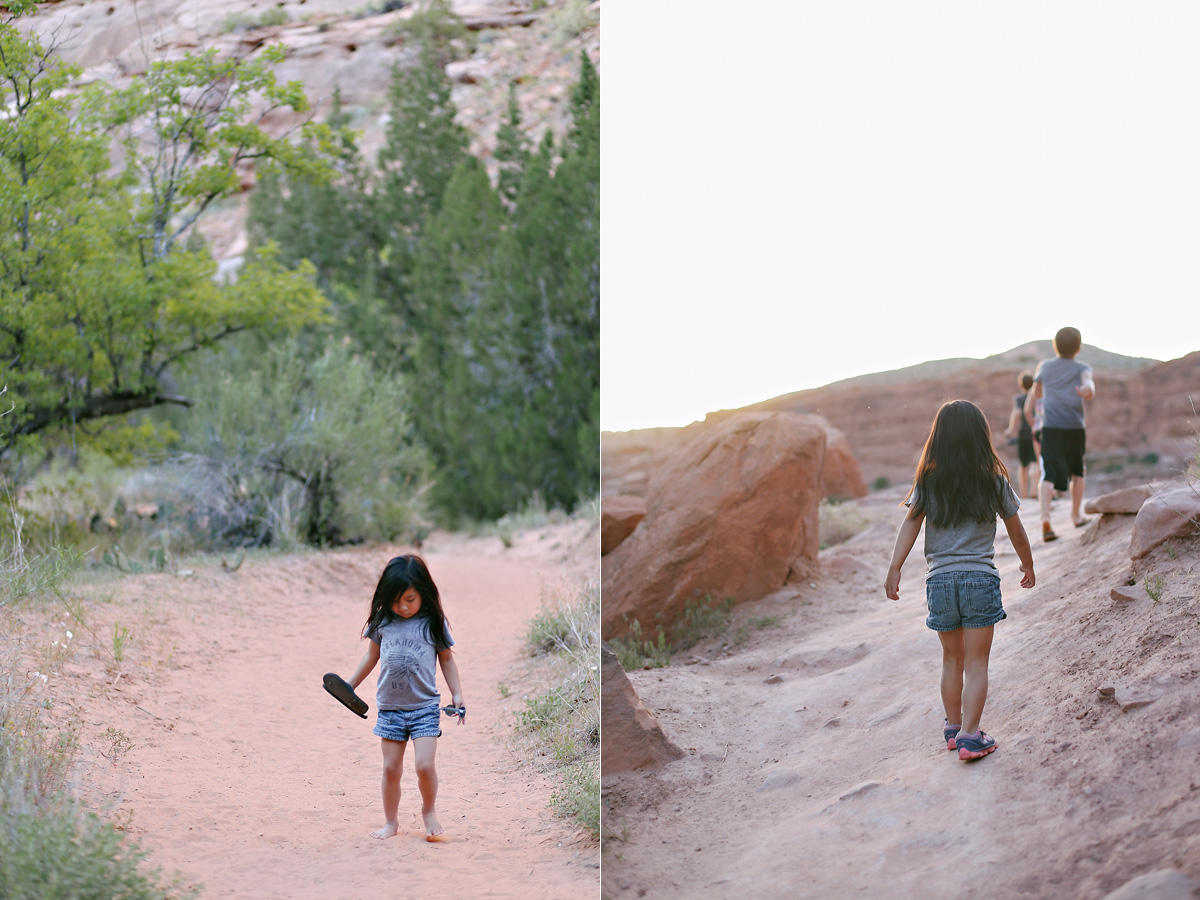 How much water did you carry for your hikes? It depends on the length of the hike and the heat. For 1-2 mile hikes, we usually packed one water bottle per person. For longer hikes, we packed 2 water bottles per person. We have our own water bottles that are bigger than the typical plastic water bottle size. The backpacks got pretty heavy with the water. I would like get everyone a hydration pack that we can insert into their backpacks.
How much water did you carry for your hikes? It depends on the length of the hike and the heat. For 1-2 mile hikes, we usually packed one water bottle per person. For longer hikes, we packed 2 water bottles per person. We have our own water bottles that are bigger than the typical plastic water bottle size. The backpacks got pretty heavy with the water. I would like get everyone a hydration pack that we can insert into their backpacks.
I see you wearing sandals – are they hiking sandals? Do you recommend them? On that particular hike, we brought one backpack with everyone’s flip flops because we scoped the trail out the night before. The trail had so much water and sand, my boys preferred to hike in their flip flops (we basically wear them all year, so it is not a shocker). The girls went back and forth between their tennis shoes and flip flops. Water hiking shoes would work best, but my kids don’t have any. I wore my high school Tevas – perfect.
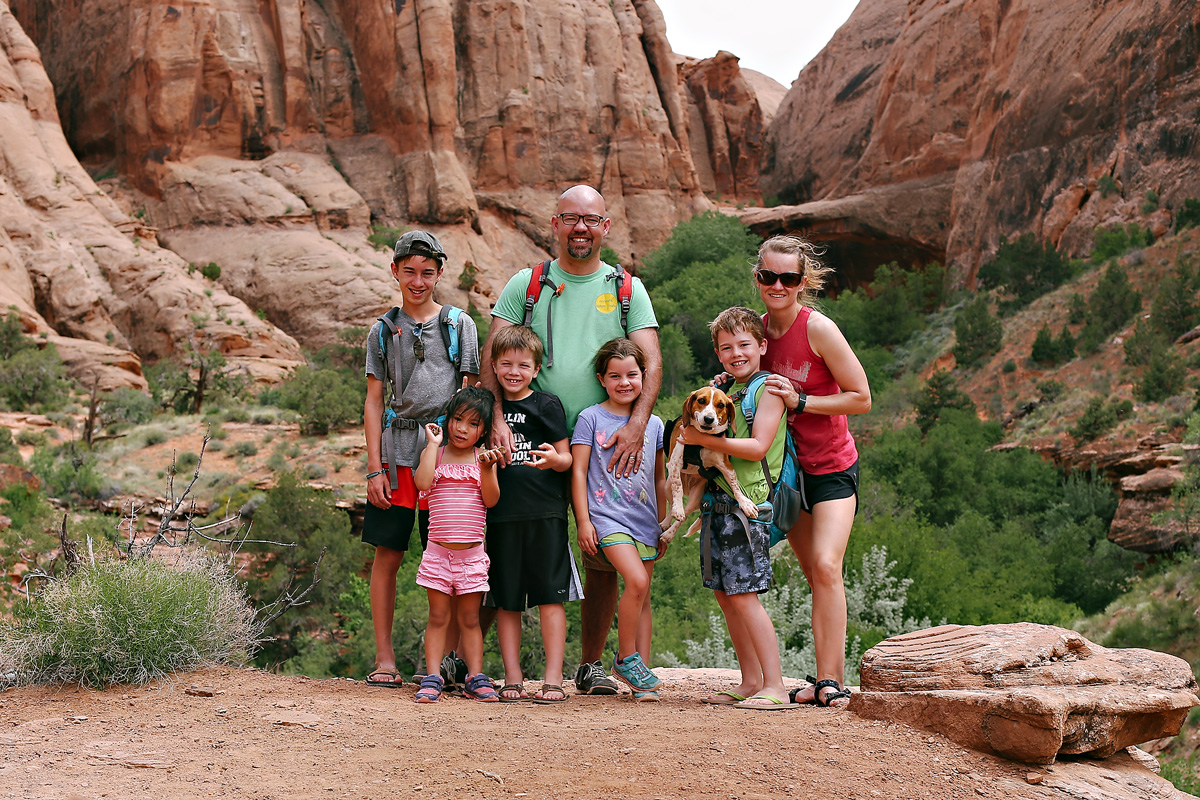 How do you hike with your camera? I use a small Tamrac camera backpack. I’ve used this backpack for about 8 years…on so many hikes and adventures. It can hold my camera body and 3 lenses (or 2 lenses and a flash). The boys always wanted to carry the hiking backpacks, so I was able to carry my camera one on every hike. Typically, I just hike with my camera in my hand. I don’t like neck straps. Obviously, this is not a good option for many people. If a trail got difficult, I would just put the camera in my backpack until I was sure footed again. After carrying the hiking backpacks with water and snacks for so many years, my camera bag feels like nothing!
How do you hike with your camera? I use a small Tamrac camera backpack. I’ve used this backpack for about 8 years…on so many hikes and adventures. It can hold my camera body and 3 lenses (or 2 lenses and a flash). The boys always wanted to carry the hiking backpacks, so I was able to carry my camera one on every hike. Typically, I just hike with my camera in my hand. I don’t like neck straps. Obviously, this is not a good option for many people. If a trail got difficult, I would just put the camera in my backpack until I was sure footed again. After carrying the hiking backpacks with water and snacks for so many years, my camera bag feels like nothing!
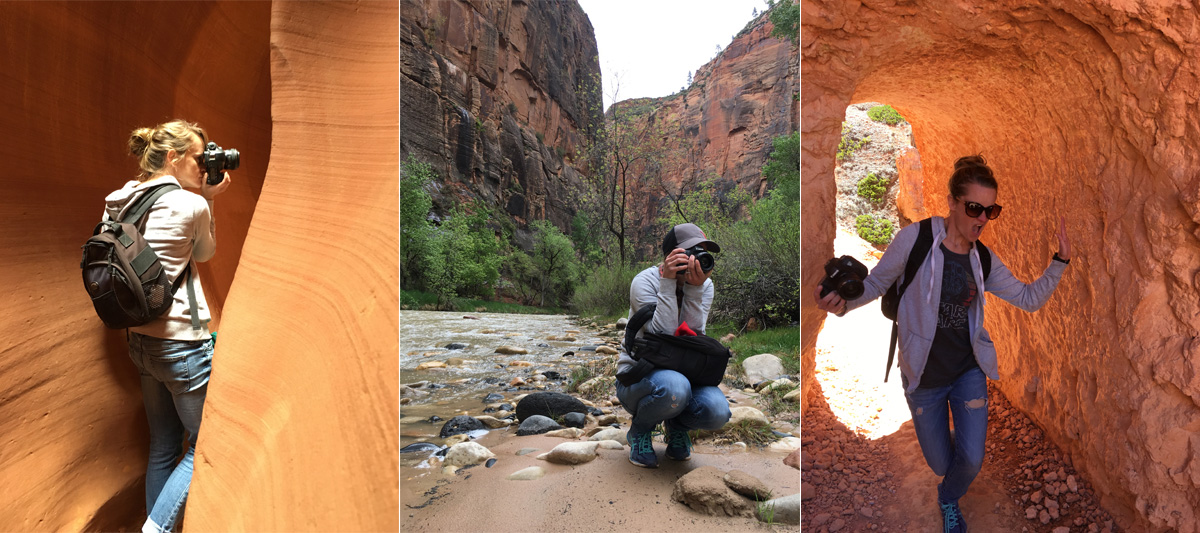 What lens did you used? I used my 28mm, 50mm, and 85mm for our trip. I carry the three lenses and my camera body in the small camera backpack. I hardly ever use my 28mm at home, but it is my primary lens when traveling in scenic locations. When I wanted portraits of the kids, I pulled out my 85mm. I did not use my 50mm very often.
What lens did you used? I used my 28mm, 50mm, and 85mm for our trip. I carry the three lenses and my camera body in the small camera backpack. I hardly ever use my 28mm at home, but it is my primary lens when traveling in scenic locations. When I wanted portraits of the kids, I pulled out my 85mm. I did not use my 50mm very often.
What is your aperture for scenic shots? Goodness, it just depended on what I wanted. I shot around f/5.6 many times, but often opted back to my favorite f/2.8 to make the foreground pop out. Since I was using my 28mm lens, the f/2.8 setting worked totally differently than with my 50mm or my 85mm. These were both shot at f/2.8. The first one I used my 28mm lens and focused on Chris (far left). The second one I used my 85mm lens and focused on my daughter.
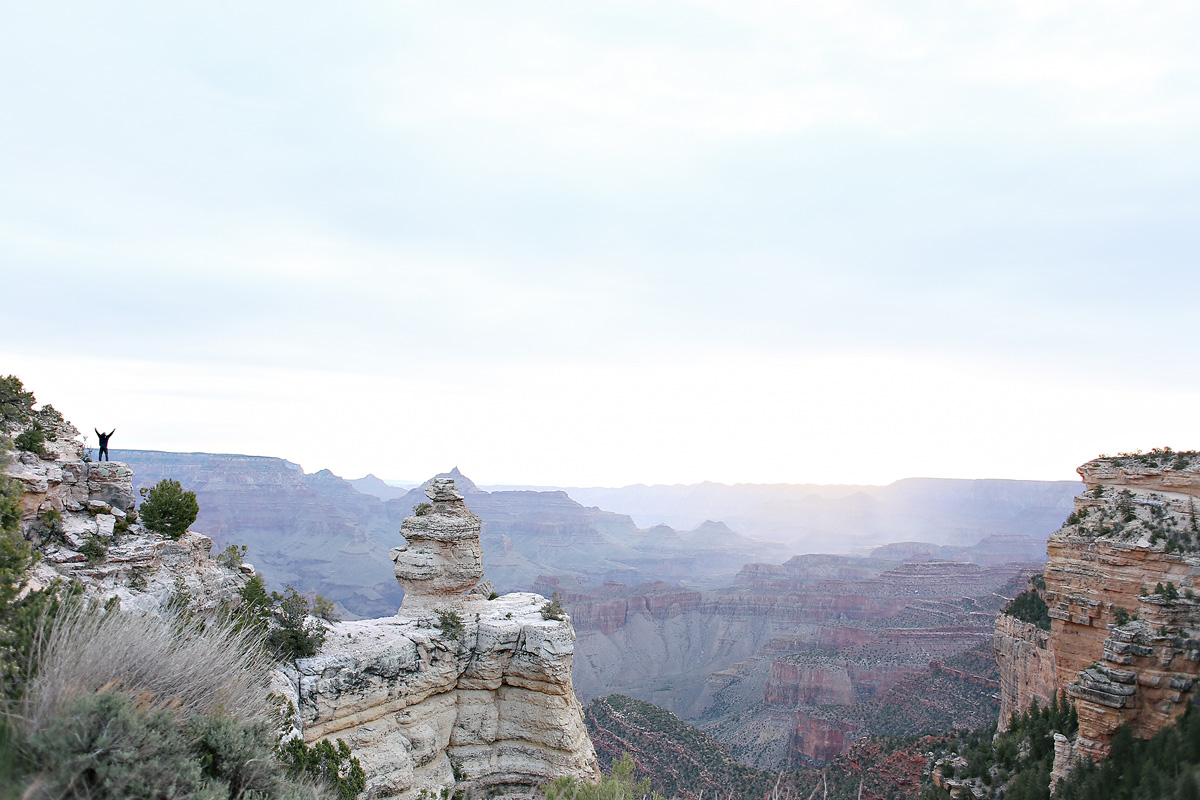
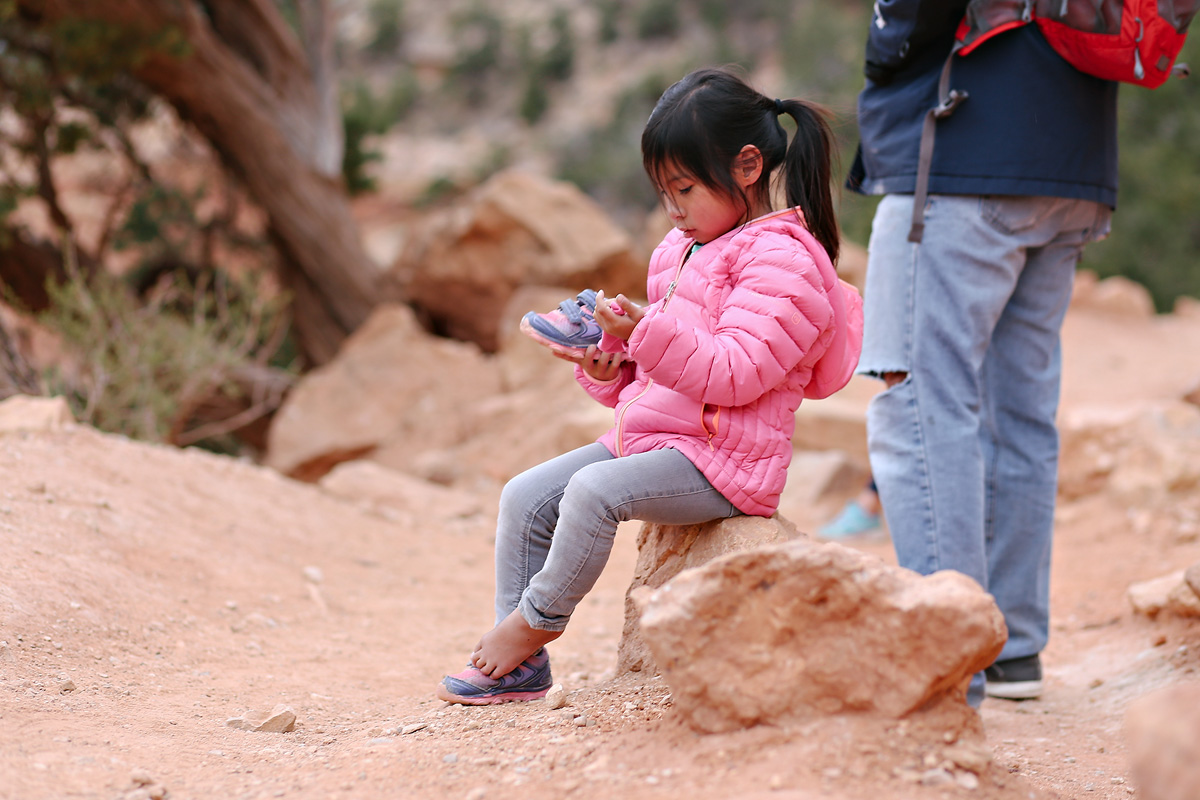 Did you use any special filters for your camera? Nope.
Did you use any special filters for your camera? Nope.
Did you take your mirror-less camera? No. I have a hard time using my mirror-less when photographing my kids. They move faster than I can change the settings. If was not capturing them, then my mirror-less would have been really fun to use on this trip.
Were the parks empty or how did you keep all the crowds out of your shots? I was asked this several times and it prompted me to write a SnapShop lesson on the topic. The parks were not empty. Some were full of people and then there were a few hikes we were all alone. SnapShop is my subscription-based photography website. It includes two core courses (basics of DSLR & phone photography). Additional lessons are added each month. You can read my lesson on how to avoid crowds in your personal family photos on the SnapShop site.
Today and tomorrow you can use the code NOCROWD for $10 off your SnapShop registration.
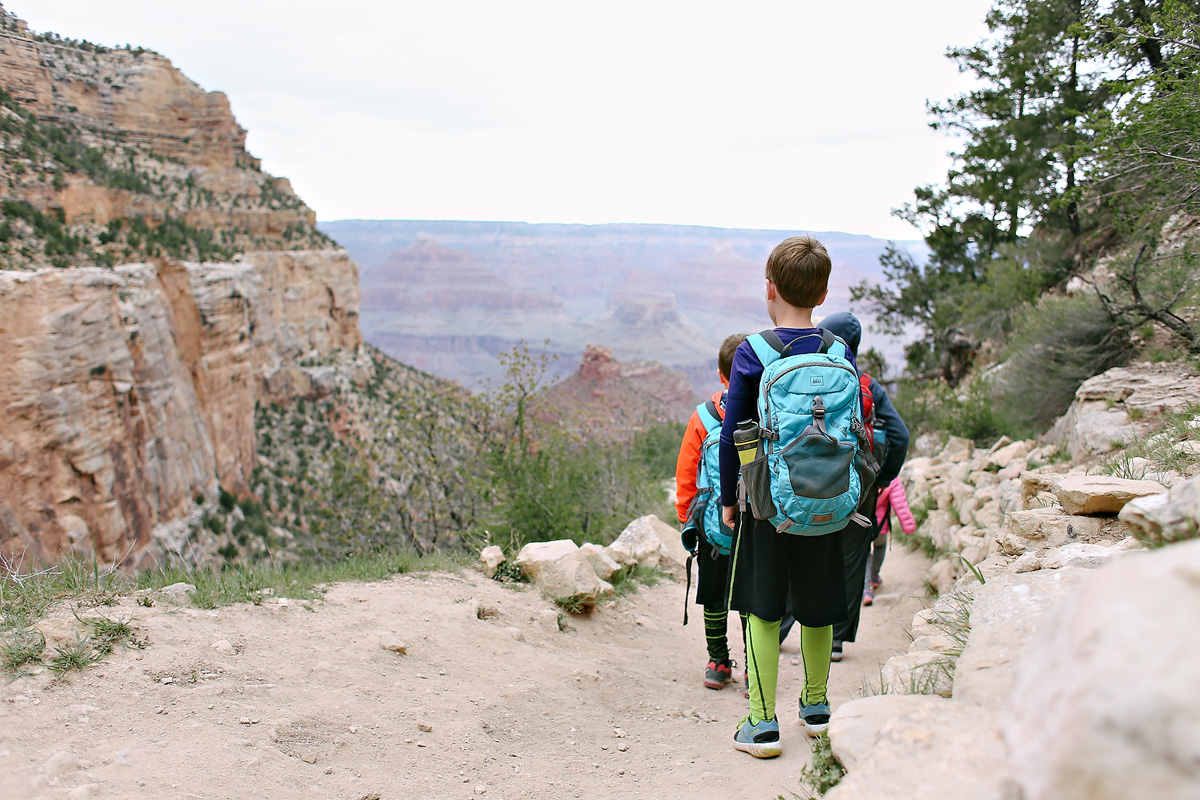
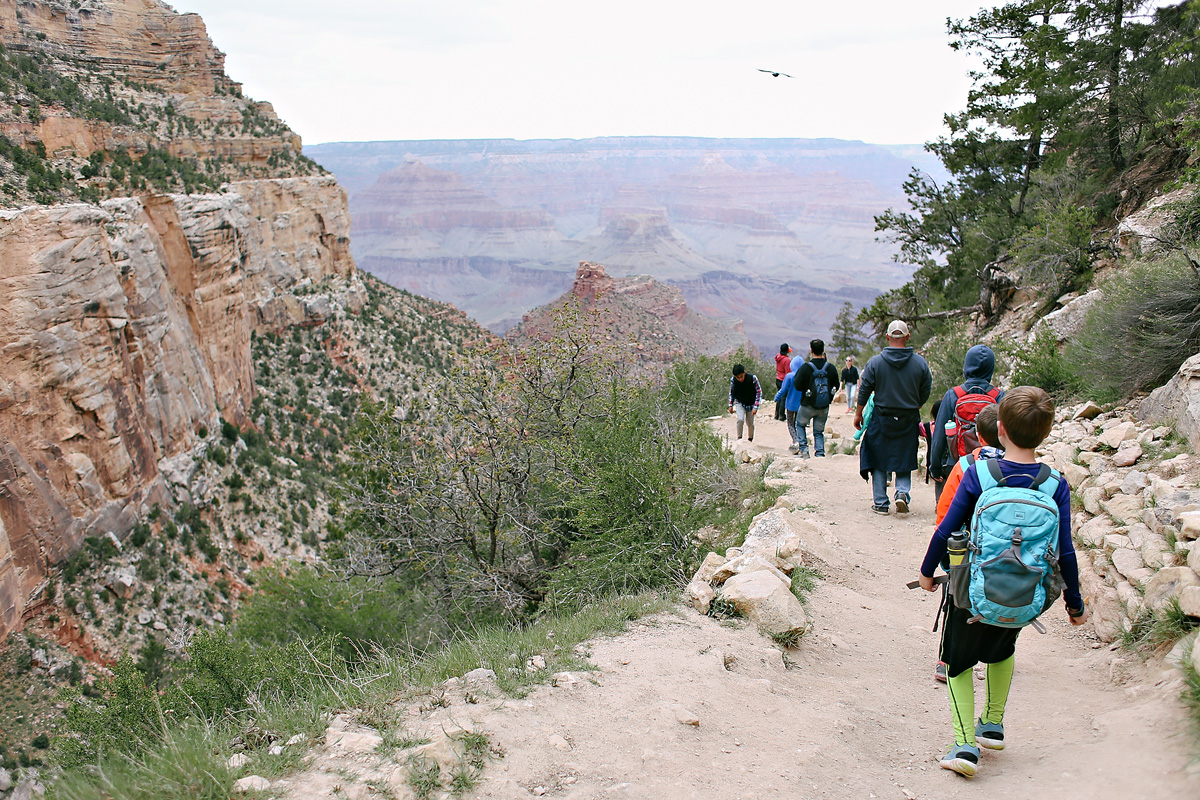 Below are links to each of the posts related to our Arizona and Utah trip. You can find more travel related posts on the Travel Page.
Below are links to each of the posts related to our Arizona and Utah trip. You can find more travel related posts on the Travel Page.

